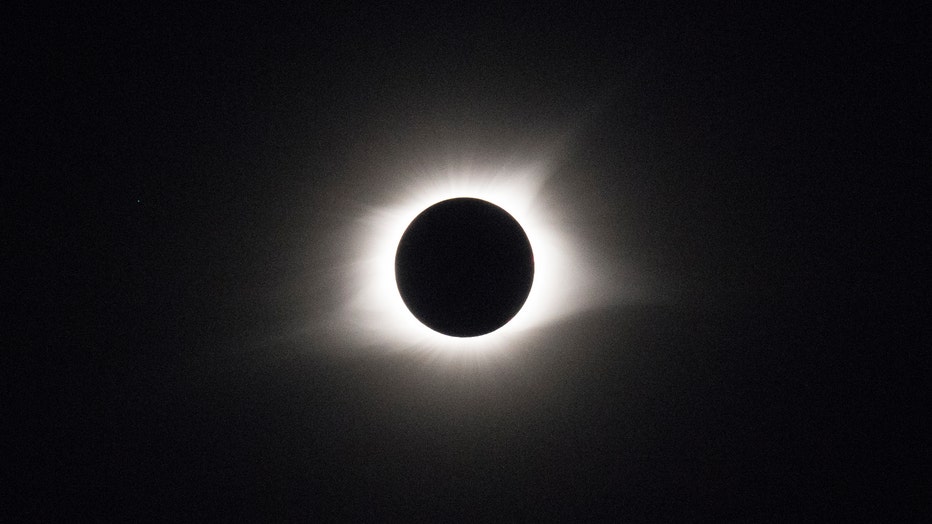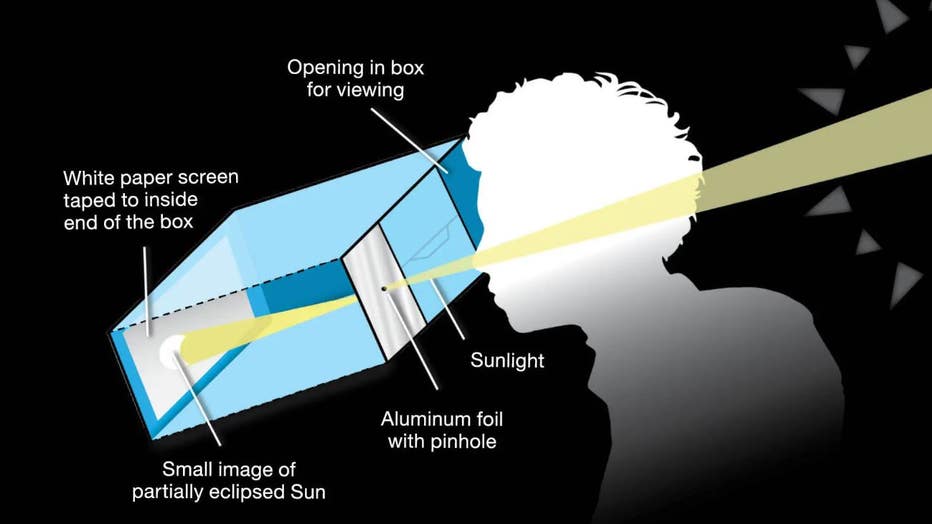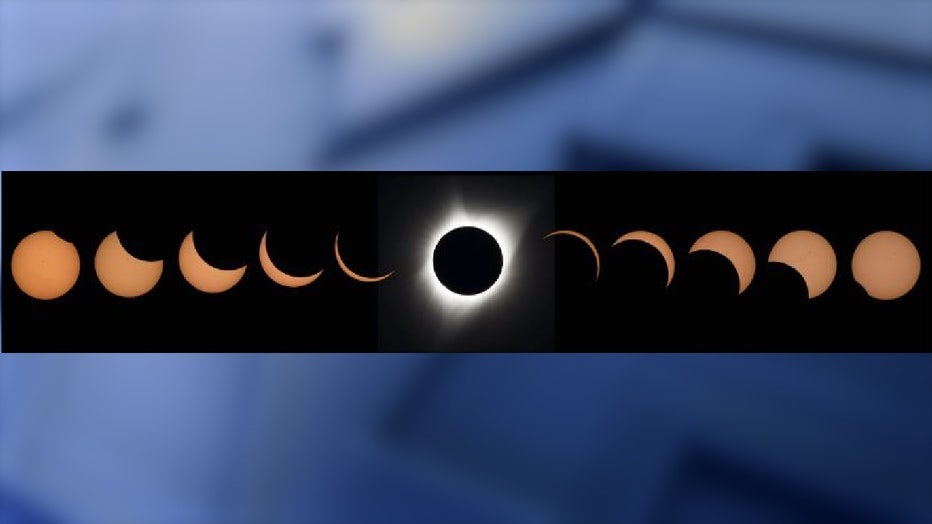Orlando to witness sun's 'ring of fire' in upcoming annular solar eclipse this weekend: Where to see it
ORLANDO, Fla. - An annular solar eclipse will be visible in Florida this weekend. Here's what you need to know:
When is the solar eclipse in 2023?
There is an annular solar eclipse on Saturday, Oct. 14.
The next solar eclipse is a total solar eclipse on April 8, 2024 and Orlando will get a partial view of it. The next solar eclipse visible from the contiguous U.S. will be on Aug. 23, 2044.

A total solar eclipse occurs on August 21, 2017, at Mary's River Covered Bridge, in Chester, IL, USA. (Photo by Patrick Gorski/NurPhoto via Getty Images)
What is a solar eclipse?
A solar eclipse happens when the moon passes between the earth and the sun, according to the Orlando Science Center. There are three kinds of solar eclipses:
- A total solar eclipse happens when the moon completely blocks the face of the sun
- A partial solar eclipse happens when the moon, sun and Earth are not perfectly aligned, causing only a part of the sun to be covered and giving it a crescent shape
- An annular solar eclipse happens when the moon is at its farthest point from Earth, making it appear smaller than the sun in our sky, creating a ring effect around the moon; the term "annular" refers to the ring effect
Where and when to see solar eclipse in Orlando, Florida?
The annular solar eclipse will travel a direct path from Oregon to Texas. This means that Orlando will get about a 60% eclipse, according to the Orlando Science Center.
The eclipse will begin at 11:52 a.m. It will peak at 1:26 p.m. and end at 3:02 p.m.
The annular solar eclipse will be visible from anywhere in Florida.
Featured
Orlando will lose almost an hour of daylight in October as fall sets in
In Orlando, the length of day will decrease by nearly 50 minutes throughout October.
How to safely see solar eclipse
It is never safe to look directly at the sun during an eclipse without special eye protection. That includes looking at the sun through a camera lens, binoculars or telescope without a special-purpose solar filter, according to NASA. Looking at an annular solar eclipse without proper eyewear could instantly cause severe eye injuries.
You can look at the photos of videos you took of the solar eclipse, but you should not look at the sun while filming, the Orlando Science Center said.
To look at a partial or annular solar eclipse, you must do so with safe solar viewing glasses or eclipse glasses. These are not regular sunglasses, no matter how dark they are, NASA said.
NASA shared a few alternatives to looking at the annular solar eclipse if you don't have viewing glasses, including creating your own eclipse projector:
You can make your own eclipse projector using a cardboard box, a white sheet of paper, tape, scissors, and aluminum foil. With the Sun behind you, sunlight will stream through a pinhole punched into aluminum foil taped over a hole in one side of the box. During the partial phases of a solar eclipse, this will project a crescent Sun onto a white sheet of paper taped to the inside of the box. Look into the box through another hole cut into the box to see the projected image.

An eclipse projector is an easy and safe way to view the eclipsed Sun (Photo via NASA)
You can look at the annular solar eclipse without proper eye protection only when the moon completely obscures the sun's face, a period known as totality.
"You’ll know it’s safe when you can no longer see any part of the Sun through eclipse glasses or a solar viewer," NASA said.

This composite image of eleven pictures shows the progression of a total solar eclipse over Madras, Oregon, on Aug. 21, 2017 Credit: NASA/Aubrey Gemignani
Click here for more information about solar eclipse safety.
Orlando Science Center to host solar eclipse viewing party
The Orlando Science Center will be hosting a viewing party for the annular solar eclipse on Saturday, Oct. 14.
General and member tickets are on sale now and must be purchased before the event. No walk-in tickets are available. Adult tickets are $27 each, seniors and students are $25 each, children are $21 each and kids under 2 years old are $3 each. Every ticket holder will get a pair of eclipse glasses.
Click here for tickets or more information.


